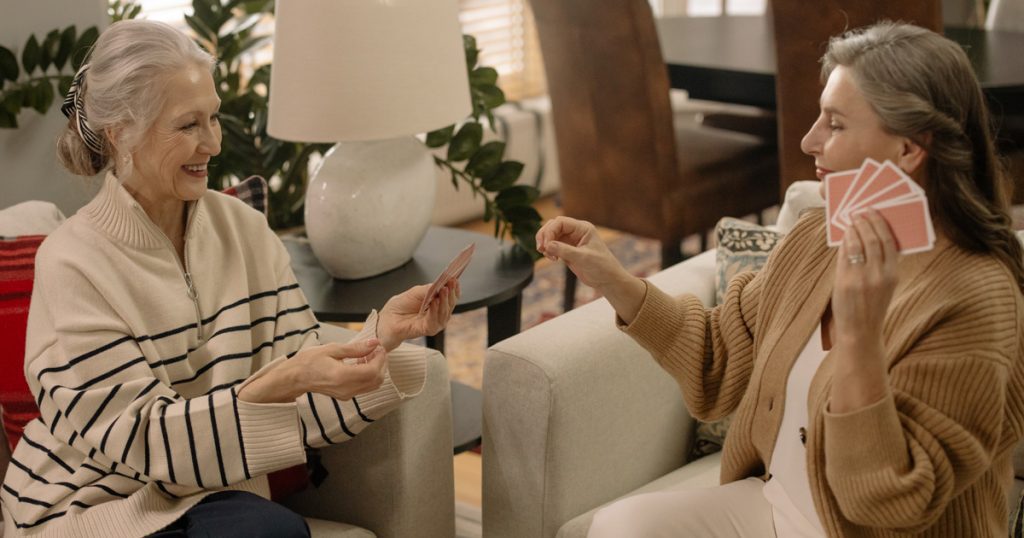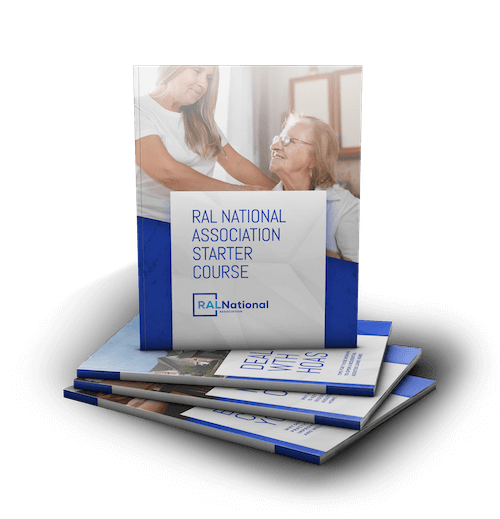Self-imposed isolation is often a coping mechanism for people dealing with Alzheimer’s disease and other related dementias. Withdrawal from activities, family, and friends can have detrimental effects on a senior.
However, did you know activities and interactions with others reduces the effects of memory impairment? It leads to a better quality of life for the seniors.
What can you do in your residential assisted living home to help mitigate the prevalence and effect of Alzheimer’s disease? In your residential assisted living home keep your seniors active, especially those with a diagnosis of Alzheimer’s disease.
Use the following stimulating activities to support seniors:
- Encourage self-expression
- Foster emotional connections with others
- Lessen the anxiety and irritability that Alzheimer’s may bring
- Make people with Alzheimer’s feel more engaged
- Stir memories
SENIORS WITH DEMENTIA NEED ACTIVITIES WHERE THEY’RE SUCCESSFUL
For residents in your assisted living home with Alzheimer’s disease, the simplest of activities can be impossible. At other times, various activities may be no problem at all.
For instance, dressing, grooming, washing, and self-feeding can present great challenges for a resident with Alzheimer’s.
Regardless of your resident’s experience with Alzheimer’s, there is still a prevailing need to feel successful. Residents need to feel that they are able to do something, even the most mundane of things, in order to continue to live with purpose and dignity.
That’s why failure-free activities for people with dementia are so important.
Here are a few failure-free activities that can be integrated into your residential assisted living home, activities that will foster success.
- Folding towels or napkins
- Creating a memory box
- Create a collage with pictures from a magazine
- Thread pasta with yarn
Engagement in successful activities reduces:
- Agitation
- Anxiety
- Depression
- Anger
Activities that foster success have also been known to reduce Sundowning Syndrome – restlessness, agitation, irritability, or confusion that can begin or worsen as daylight begins to fade.
To help older adults feel productive and successful, we’ve got 10 simple activity ideas that have no right or wrong way to do them. Plus, they’re free or very low cost.
10 FANTASTIC, FAILURE-FREE ACTIVITIES FOR PEOPLE WITH DEMENTIA
No one resident is like another. It may take some experimenting to find the right activities for your seniors.
Here are 10 to help you get started.
- Folding Towels
Asking a resident for assistance with laundry is a purposeful way to keep them occupied. Folding towels is an activity where success is guaranteed. They are also contributing to the entire assisted living home by doing so.
This activity achieves the goal of just keeping them happily engaged. It’s best to use hand towels because they’re small and easily folded. The quality of work is not the object of this activity, but the fact that they are actively engaged in a meaningful activity.
- Create a memory box
Creating a memory box can help your older adult feel connected to their past career and previous hobbies. The type of box does not matter. Get whatever kind of box that works for your home and fill it with things they would have used at work, copies of photos and non-important keepsakes, or objects from hobbies.
If the resident was once good at handy work, place nuts, bolts, pipe pieces and fittings, and twine in their box. This will engage your resident and allow them to express themselves in a healthy way.
This activity can apply to any job or hobby a resident once performed. Just be creative with the objects and make sure safety comes first.
- Untie knots
Using medium-thickness rope from your local hardware store and loosely tie a few knots. Ask your resident to help you untie them. This maintains dexterity in the hands and engages the brain in problem-solving.
- Thread pasta with yarn or string
Using dry pasta with big holes, take some thick yarn or regular string. Create a “needle” by taping around the end of the string, making it longer than the piece of pasta. Then, have your older adult string the pasta using their “needle” and thread. Again, this fosters dexterity in the hands and activates the mind in executive function-like processing.
- Create a box of fun fabrics
Everyone has fun with this one. Your resident who enjoyed sewing or creating fabric crafts will love this.
Take a box and put dozens of different colored pieces of assorted fabrics inside. Be sure to vary the textures like lace, felt, silk, velvet, wool, cotton, etc. Your older adult can enjoy touching, folding, and sorting the fabrics. The sensations are excellent for brain function.
- Make a DIY picture puzzle
Print a copy of a favorite family photo, memorable vacation, or any other scenery that’s memorable for your resident. Laminate it and cut it into four (or more) puzzle-piece shaped pieces to make a personalized DIY puzzle.
- Cut pictures from old magazines or calendars
Seniors typically enjoy perusing old magazines or calendars, so indulge this. Have your resident cut out pictures from these magazines and/or calendars. Have them choose pictures that reflect their hobbies or life.
Then, start scrapbooking. Residents like this activity because each picture chosen bears meaning. It engages both the memory and emotions.
- Puzzle Cube
The puzzle cube is fun, engaging, and simple. Residents like the brightly colored simplified Rubik’s cube. The only difference is they’ll be able to figure this cube out much better than it’s more complicated sibling.
The object of this game is to simply enjoy turning the cube pieces and creating different color combinations on each face.
- Large Print Playing Cards
Playing cards make a great activity for older adults, especially when the letters and numbers are large and easy to read.
Early dementia residents enjoy simple card games like solitaire, go fish, blackjack, or war. An older adult in later stages of dementia enjoys shuffling the cards and separating them by color or suit.
Observe their level of enjoyment. If the resident seems overwhelmed or frustrated, remove some of the cards so the resident does not have to manage so many.
- Pattern Blocks and Board
These fun shapes can be used in many ways. Seniors can use the included boards to create colorful pictures, make free form shapes, or trace the shapes on paper.
PROFESSIONAL TIPS FOR QUALITY MEMORY CARE
The object of any activities for dementia patients is to engage their executive function in a manageable way. Your residential assisted living home staff activity person may even create games that your residents enjoy. The object of any activity for dementia residents is to bring them success.
Be sure your activities foster success for these seniors – their quality of life will be much better.
The Residential Assisted Living National Association is here to provide information, resources and support for seniors, their families, and RAL owners.
RALNA advocates for residential assisted living business owners and operators with guidance for legal expertise, continued education, national marketing, group purchasing power and a continual positive voice for the industry.
For ongoing support and to learn about new innovative practices, start by clicking here.











